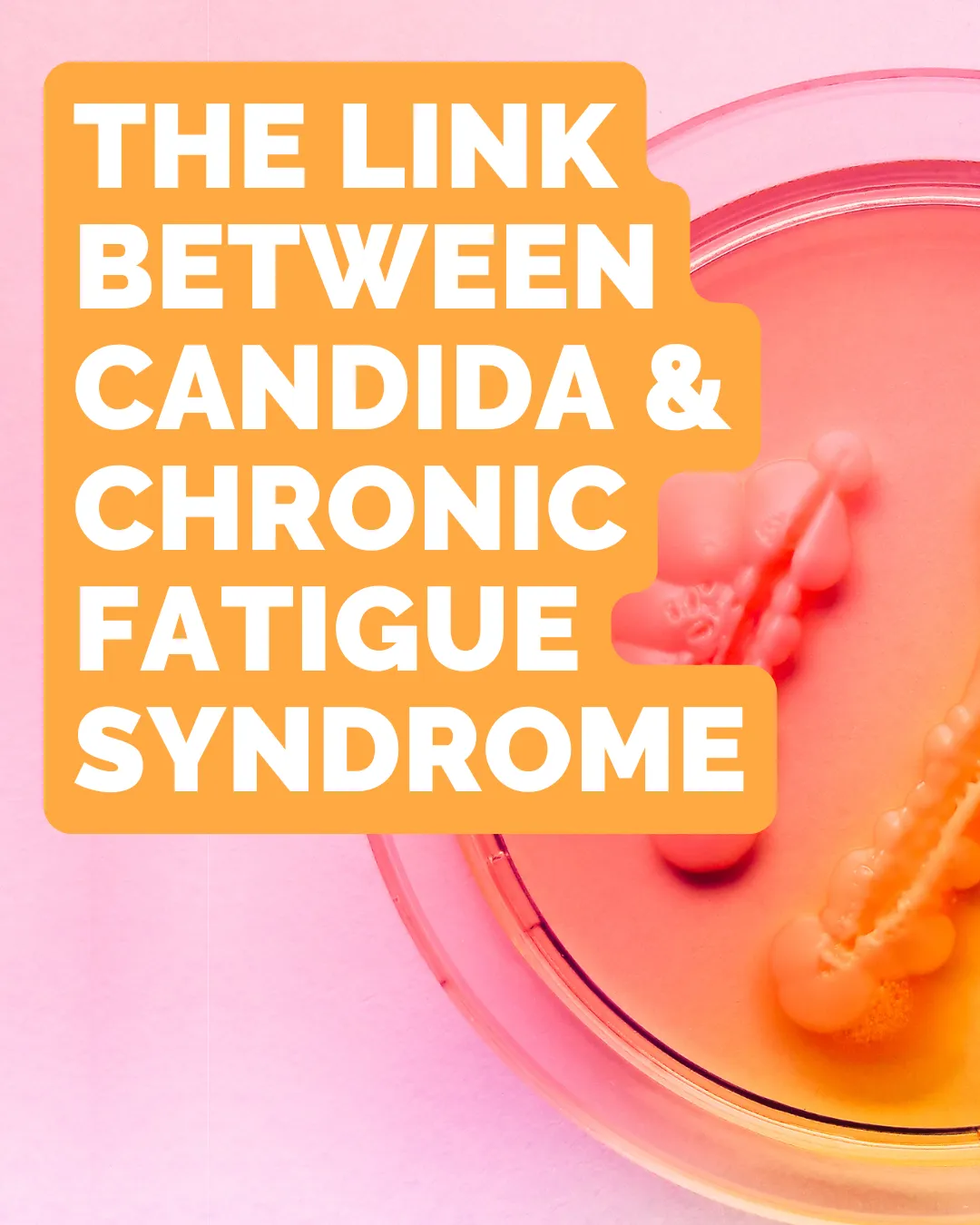
Could Candida Be Draining Your Energy?
Have you ever wondered if your constant fatigue, brain fog, or unexplained gut issues could be tied to something deeper—like your microbiome?
Candida, a type of yeast that naturally lives in the body, might be quietly throwing off your energy, immune health, and digestion.
Let’s explore the connection between Candida overgrowth and chronic fatigue—and what you can do to support your body.
What Is Candida Overgrowth?
Candida albicans is a yeast that lives in the mouth, gut, and vaginal tract. In a healthy system, it’s kept in check by beneficial bacteria. But when that balance is disrupted—due to antibiotics, a high-sugar diet, chronic stress, or poor gut health—Candida can multiply.
Common symptoms of overgrowth include:
Fatigue
Bloating and digestive discomfort
Brain fog
Recurring yeast infections
Skin issues (like rashes or itching)
The Link Between Candida and Chronic Fatigue Syndrome (CFS/ME)
Chronic Fatigue Syndrome (CFS), also called Myalgic Encephalomyelitis (ME), is a complex condition marked by long-term, overwhelming fatigue, brain fog, muscle pain, and unrefreshing sleep.
Researchers are exploring how gut imbalances—including Candida—might play a role. In some individuals with CFS, elevated Candida antibodies have been found, pointing to ongoing immune reactivity.
Candida overgrowth may:
Trigger low-grade inflammation
Disrupt the gut lining (leaky gut)
Affect neurotransmitter production (impacting mood and energy)
Contribute to a total-body microbial burden (overwhelming the immune system)
Why Candida Might Be Fueling Your Fatigue
Here’s how this yeast imbalance could be draining your energy reserves:
Immune Overload: Candida’s presence may overstimulate the immune system, creating a cycle of chronic inflammation.
Leaky Gut & Inflammation: Candida can damage the gut lining, allowing toxins into the bloodstream—fueling fatigue and fog.
Neurotransmitter Disruption: A stressed gut can affect serotonin and dopamine production, worsening low mood and poor focus.
Combined Microbial Imbalance: Candida is rarely alone—it often tags along with other stealthy pathogens that contribute to exhaustion.
Supporting Your Body: Candida & Fatigue Protocol
If you suspect Candida may be part of your fatigue puzzle, here’s how you can begin restoring balance:
1. Rebalance Your Diet
Cut sugar, refined carbs, and processed foods (which feed yeast). Focus on:
Fiber-rich veggies
Clean proteins
Healthy fats
Antifungal foods like garlic and coconut oil
2. Restore Gut Balance
Use high-quality probiotics to crowd out yeast
Include prebiotic fiber (like onions, asparagus, garlic)
Consider herbal antifungals like oregano oil, caprylic acid, or pau d’arco (with practitioner guidance)
3. Repair the Gut Lining
Add L-glutamine, zinc carnosine, and DGL (deglycyrrhizinated licorice)
Support liver detox with leafy greens, beets, and dandelion tea
4. Support the Nervous System
Prioritize consistent sleep
Practice daily stress relief (walks, deep breathing, prayer, or journaling)
Be gentle with your body—slow movement can be powerful
You Don’t Have to Guess Anymore
If you're dealing with low energy, brain fog, recurring infections, or gut drama that won't go away—Candida might be part of the story. The good news? You don’t have to figure it out alone.
Functional lab testing and personalized protocols can help uncover the root cause and guide a step-by-step approach to healing.
👉 Ready to investigate what’s draining your energy?
Book a no-cost Discovery Call and let’s explore the root causes together:
📍 www.kansasfunctionalmedicine.com/book-now
References
Evengård, B., Gräns, H., Wahlund, E., & Nord, C. E. (2007). Increased number of Candida albicans in the faecal microflora of chronic fatigue syndrome patients during the acute phase of illness. Scandinavian Journal of Gastroenterology, 42(12), 1514–1515. https://doi.org/10.1080/00365520701580397pmc.ncbi.nlm.nih.gov+1pmc.ncbi.nlm.nih.gov+1
Campagnolo, N., Johnston, S., Collatz, A., Staines, D., & Marshall-Gradisnik, S. (2017). Dietary and nutrition interventions for the therapeutic treatment of chronic fatigue syndrome/myalgic encephalomyelitis: a systematic review. Journal of Human Nutrition and Dietetics, 30(3), 247–259. https://doi.org/10.1111/jhn.12435pubmed.ncbi.nlm.nih.gov
Lorusso, L., Mikhaylova, S. V., Capelli, E., Ferrari, D., Ngonga, G. K., & Ricevuti, G. (2009). Immunological aspects of chronic fatigue syndrome. Autoimmunity Reviews, 8(4), 287–291. https://doi.org/10.1016/j.autrev.2008.08.003
Hobday, R. A., & Cason, J. W. (2008). Dietary intervention in chronic fatigue syndrome. Journal of Human Nutrition and Dietetics, 21(2), 142–149. https://doi.org/10.1111/j.1365-277X.2008.00857.xpubmed.ncbi.nlm.nih.gov
